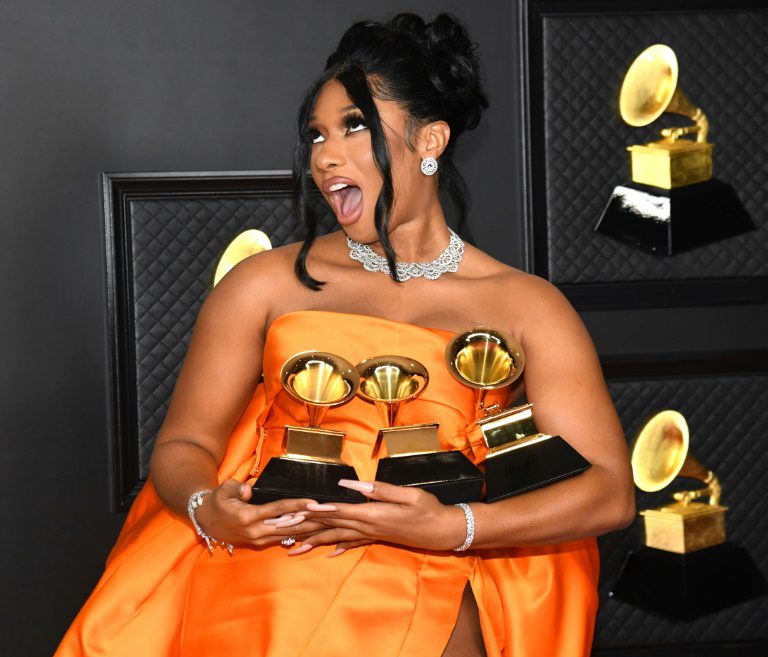Hip Hop Post: New Female Rappers by Cheyanne Harris and Aryn Wright Thompson
What does the genre of new female rappers originate in?
Hip hop began as a music form that used wordplay, repetition, and metaphor to tell stories that ranged from dark and violent to romantic and hopeful. The industry quickly developed a history of marginalizing women’s accomplishments and worth, with lyrics based on violence, sex, and masculinity where women existed only as sexual conquests or meaningless background characters.
Pioneer artists in the late 1980s and 90s like MC Lyte, Queen Latifah, Salt-N-Pepa, Lauryn Hill, Lil’ Kim, Missy Elliot, Trina, Eve, Remy Ma, and Erykah Badu shared similarities in their unapologetic independence, focus on the issues of black women, demand for respect, sex positivity, and blend of hip hop with other genres like R&B and soul.
Nicki Minaj, commonly referred to as the Queen of Rap, openly credits her inspiration to many earlier pioneering female rappers. Her extreme popularity is often credited with making female rap more mainstream and paving the way for new female rappers.
How are current female rappers different than older female rappers?
One of the biggest differences between today’s female rappers and the pioneering female rappers is that modern rappers don’t face as many obstacles to reach fame. The first female rappers were met with strong resistance and backlash. It was also much harder to be recognized. Now, with so many up and coming female rappers, it seems like new artists are popping up all the time. That being said, sexism and misogyny are still serious hurdles for even the most famous of artists.
As a response to a lot of the early efforts to keep hip-hop masculine, early female rappers often weren’t as openly expressive with their femininity. Starting with Lil Kim, modern artists boldly display and discuss their womanhood in their lyrics, outfits, music videos, and social media presence.
The increased number of female rappers brings more variety to the genre. Megan the Stallion is completely different from Doja Cat who’s completely different from Cardi B who’s completely different from Rico Nasty. Today’s female rappers don’t seems to be afraid to branch out, both in their music and in their personal platforms. Megan the Stallion is known for her Houston background, education, free styles, and friendly approachable energy. Cardi B is known for her journey from a stripper to a top artist, her hustler attitude, and her gritty recollections of life before fame. Doja Cat and Rico Nasty are both known for their edgier flows and fashion styles.
Lastly, many critics of new female rappers find their material to be much more vulgar, leading to the next segment.


Is New Female Rap Too Vulgar
Salt-N-Pepa were some of the first in female rap to fully and directly embrace sexuality and their sex appeal in the late 1980s. In the 1990s, rappers like Lil Kim and Trina took this tradition and furthered it with increasingly raunchy lyrics. Nicki Minaj also famously doesn’t shy away from sexual topics. However, many critics find the vulgarity and sexuality of today’s female rap songs to be over the top. In this section, we’ll investigate whether there has been a drastic increase in vulgarity and the implications that it suggests for today’s society.
Firstly, has the sexual nature of new female rappers become exceedingly bold? Looking at the most popular songs from Megan the Stallion, Cardi B, Doja Cat, the City Girls, and Flo Milli, the answer is pretty obvious. With chart-toppers like “Big Ol’ Freak”, “WAP”, “Cyber Sex”, “P*ssy Talk”, and “In the Party”, it seems as though sexual themes and raunchy lyrics are now less of a groundbreaking rebellion and more of a norm. However, does the increased frequency of vulgar lyrics make them any less empowering?
This leads to quandries about the implications of vulgarity in female rap. Compared to the depictions of women in male rap artists, female rap tends to paint women as powerful and independent sexual beings. Rather than objects of sexual currency to be traded and commodified, female rappers flip the script and instead describe men as disposable objects to provide sexual gratification. It seems like the vulgarity of female rap could simply be a response to years of dehumanization and commodification.
Potentially, the perceived sexual nature of female rap is in some cases not intended to be sexual at all, and it is the male gaze that objectifies the genre. Take twerk songs for example. While male rap song lyrics will demand women to twerk for the artist’s sexual satisfaction, female rap songs view it as an exciting dance form. The music video for “Twerk” by the City Girls actually doesn’t include men at all and only portrays women encouraging and hyping each other up.
In conclusion, the sexuality of new female rappers partially has to do with women partaking in activities purely for their own amusement without needing male validation, and partially to do with female rappers boldly embracing their sexual independence and power.




